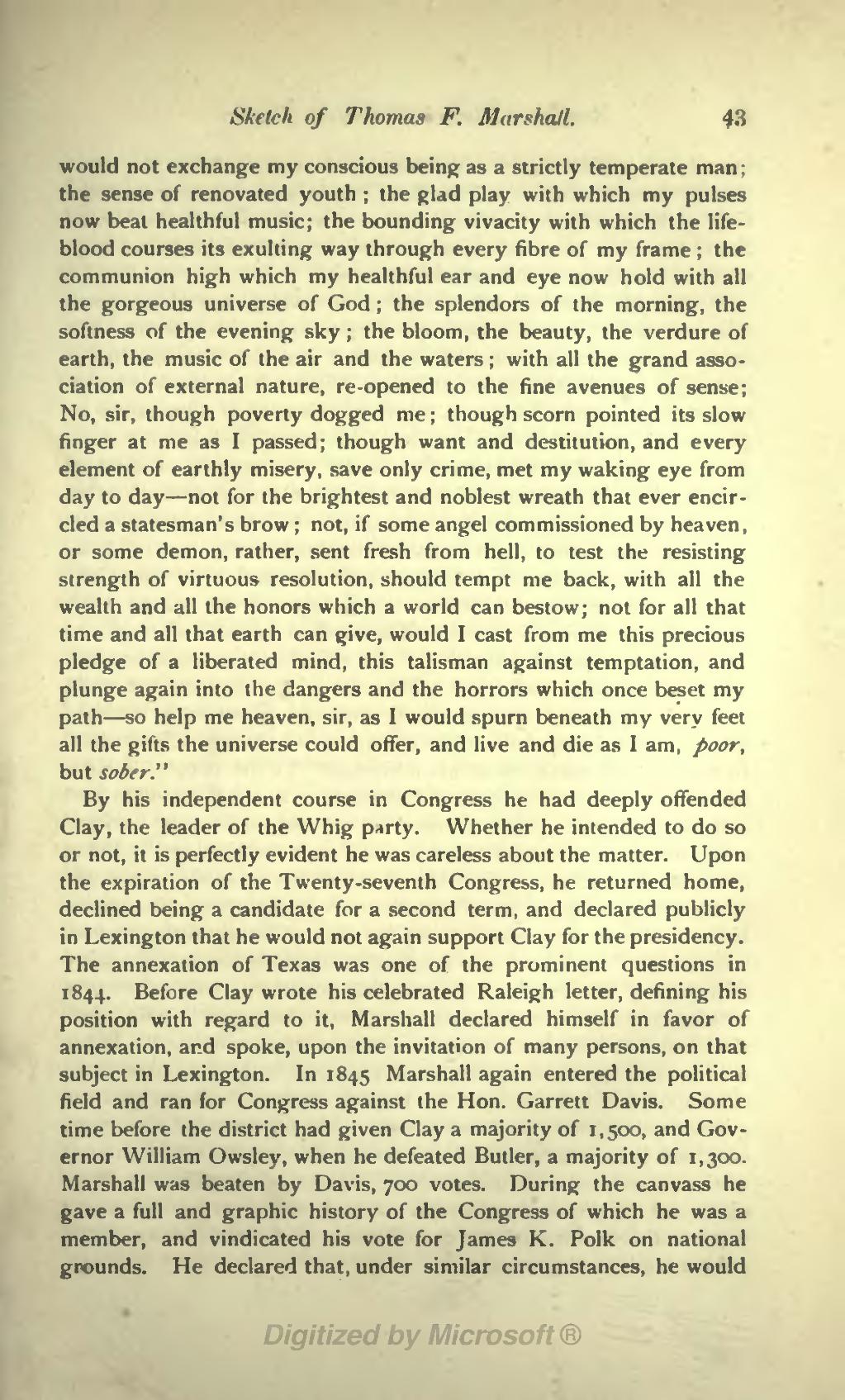v/i of Thomas F. Marshall. 43
would not exchange my conscious being as a strictly temperate man; the sense of renovated youth ; the glad play with which my pulses now beat healthful music; the bounding vivacity with which the life- blood courses its exulting way through every fibre of my frame ; the communion high which my healthful ear and eye now hold with all the gorgeous universe of God ; the splendors of the morning, the softness of the evening sky ; the bloom, the beauty, the verdure of earth, the music of the air and the waters ; with all the grand asso- ciation of external nature, re-opened to the fine avenues of sense; No, sir, though poverty dogged me ; though scorn pointed its slow finger at me as I passed; though want and destitution, and every element of earthly misery, save only crime, met my waking eye from day to day not for the brightest and noblest wreath that ever encir- cled a statesman's brow ; not, if some angel commissioned by heaven, or some demon, rather, sent fresh from hell, to test the resisting strength of virtuous resolution, should tempt me back, with all the wealth and all the honors which a world can bestow; not for all that time and all that earth can give, would I cast from me this precious pledge of a liberated mind, this talisman against temptation, and plunge again into the dangers and the horrors which once beset my path so help me heaven, sir, as I would spurn beneath my very feet all the gifts the universe could offer, and live and die as I am, poor, but sober."
By his independent course in Congress he had deeply offended Clay, the leader of the Whig party. Whether he intended to do so or not, it is perfectly evident he was careless about the matter. Upon the expiration of the Twenty-seventh Congress, he returned home, declined being a candidate for a second term, and declared publicly in Lexington that he would not again support Clay for the presidency. The annexation of Texas was one of the prominent questions in 1844. Before Clay wrote his celebrated Raleigh letter, defining his position with regard to it, Marshall declared himself in favor of annexation, and spoke, upon the invitation of many persons, on that subject in Lexington. In 1845 Marshall again entered the political field and ran for Congress against the Hon. Garrett Davis. Some time before the district had given Clay a majority of 1,500, and Gov- ernor William Owsley, when he defeated Butler, a majority of 1,300. Marshall was beaten by Davis, 700 votes. During the canvass he gave a full and graphic history of the Congress of which he was a member, and vindicated his vote for James K. Polk on national grounds. He declared that, under similar circumstances, he would
